 "/>
"/>
 "/>
"/>

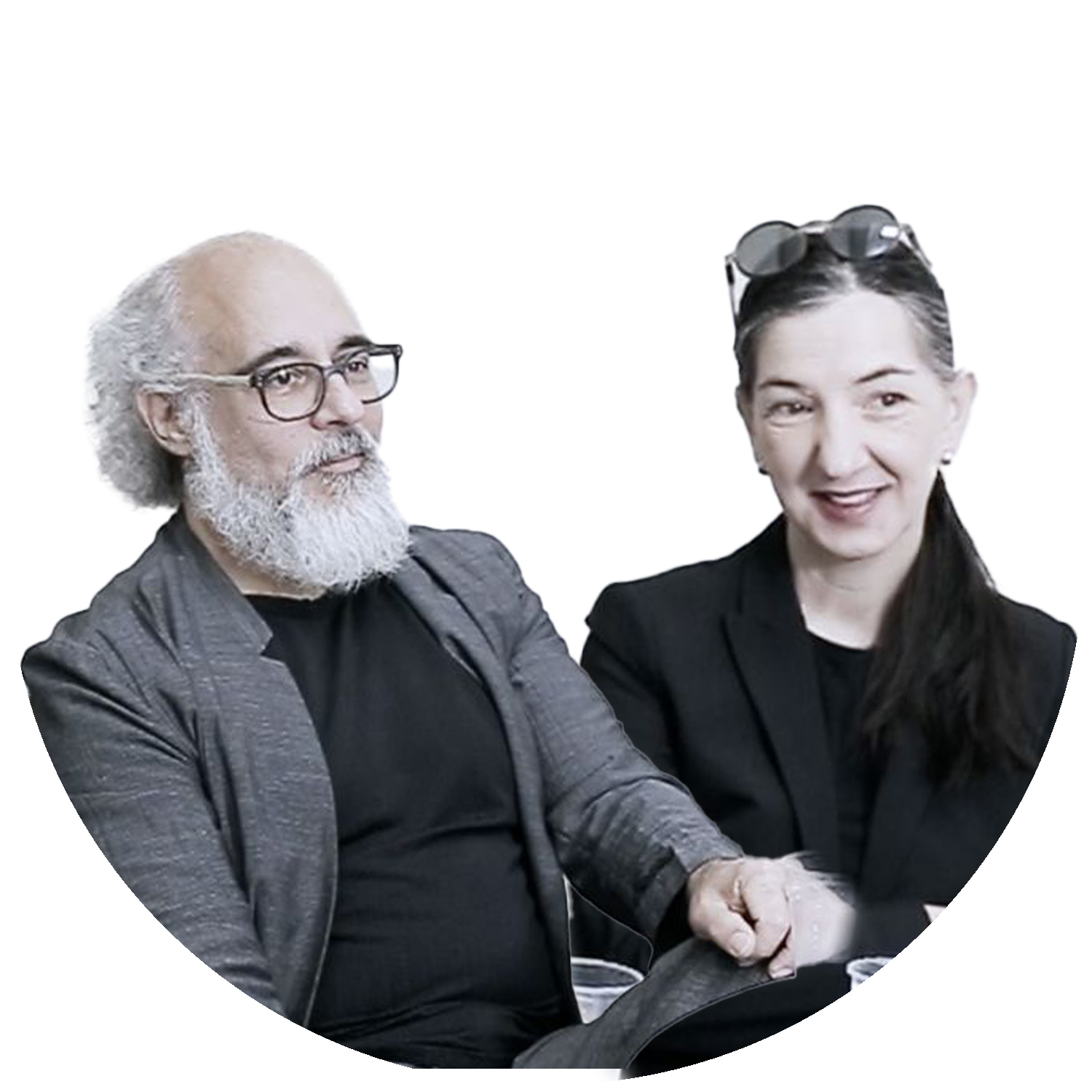
Mauricio Villarreal
PLACE 創(chuàng)始合伙人、首席設(shè)計師
Zeljka Carol Kekez
PLACE 創(chuàng)始合伙人、首席設(shè)計師
我們是做什么的?我們?yōu)槭裁匆獜氖戮坝^設(shè)計實踐?我們對創(chuàng)意的熱情和追求源于什么?我們?yōu)槭裁磩?chuàng)立這個事務(wù)所?我們想要實現(xiàn)什么?通過這些問題我們得出了一個核心思想:我們創(chuàng)造場所——人們享受的場所,所以我們的事務(wù)所就應(yīng)該叫PLACE。這是一個非常民主和令人興奮的過程。
—Mauricio Villarreal
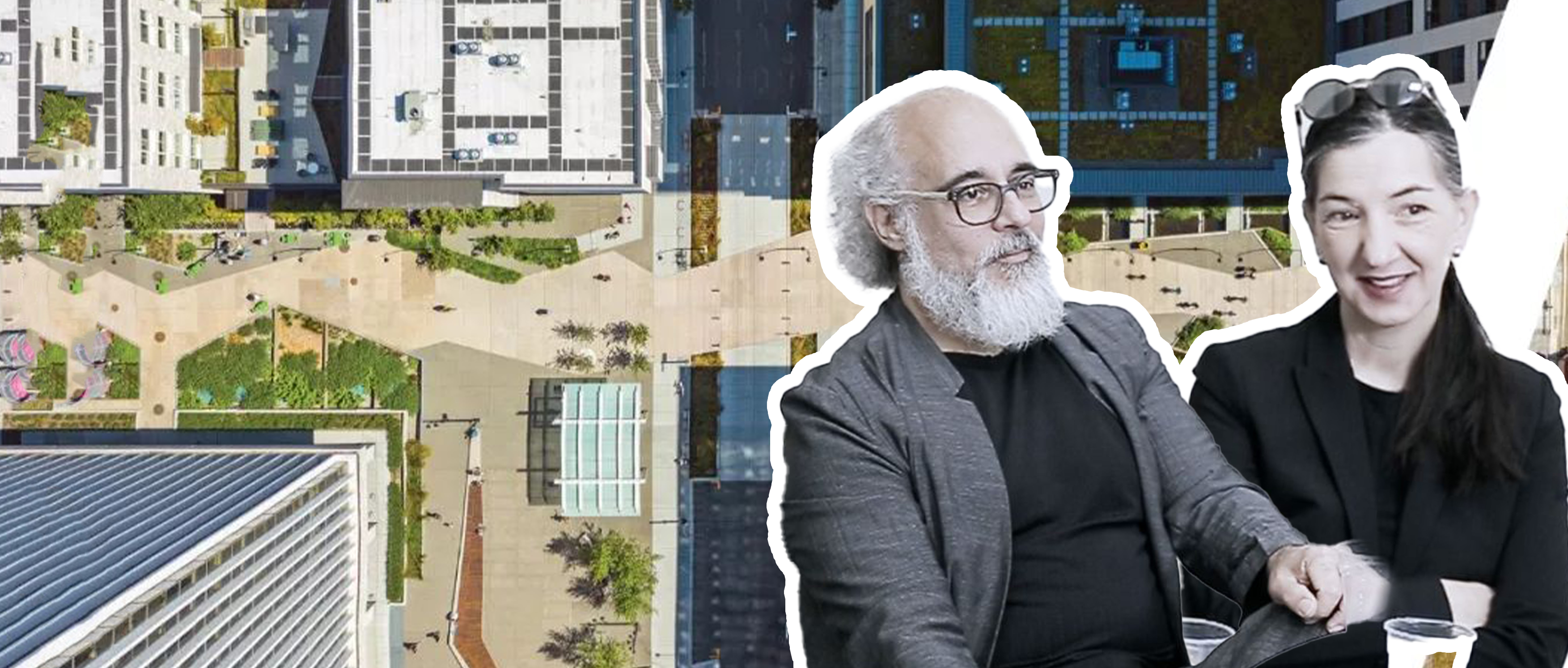
01 / People
本期人物

Mauricio Villarreal
PLACE 創(chuàng)始合伙人、首席設(shè)計師

Zeljka Carol Kekez
PLACE 創(chuàng)始合伙人、首席設(shè)計師
02 / PlACE
公司緣起和創(chuàng)業(yè)初心
█ 我們注意到PLACE的事務(wù)所里面有幾臺摩托車,這是為什么?
I noticed that you have some motorcycles in the studio. Why?
M:有好幾個原因。一個是我本人喜歡騎摩托,而且我從十五歲就開始騎了。我一般會去賽道騎或是在波特蘭到華盛頓一段很美的路上騎,我還特別喜歡疾馳和在摩托上擺各種姿勢,這是我的一種釋放能量的方式。另外一個原因是,在PLACE,不論我們四面周遭的物品還是我們所做的事情,都是經(jīng)過優(yōu)秀的設(shè)計和匠心的創(chuàng)作過程而產(chǎn)生的,比如杯子、摩托車、咖啡壺以及場所。我們身邊所有事物的背后都隱含著某種意圖、目的和思考。
同樣,制作精美的摩托車從某種意義上說,是一臺功能性的機器。但是從另一種角度來看,也是工業(yè)美學(xué)的藝術(shù)品,是設(shè)計師經(jīng)過縝密的思考再由工匠將它親手打造的,因此是人創(chuàng)造了美。摩托車在我們事務(wù)所既是一種工具又是一種藝術(shù)的表現(xiàn)形式。我們喜歡像這樣被有趣的想法、卓越的設(shè)計、優(yōu)秀的人和絕妙的靈感包圍。
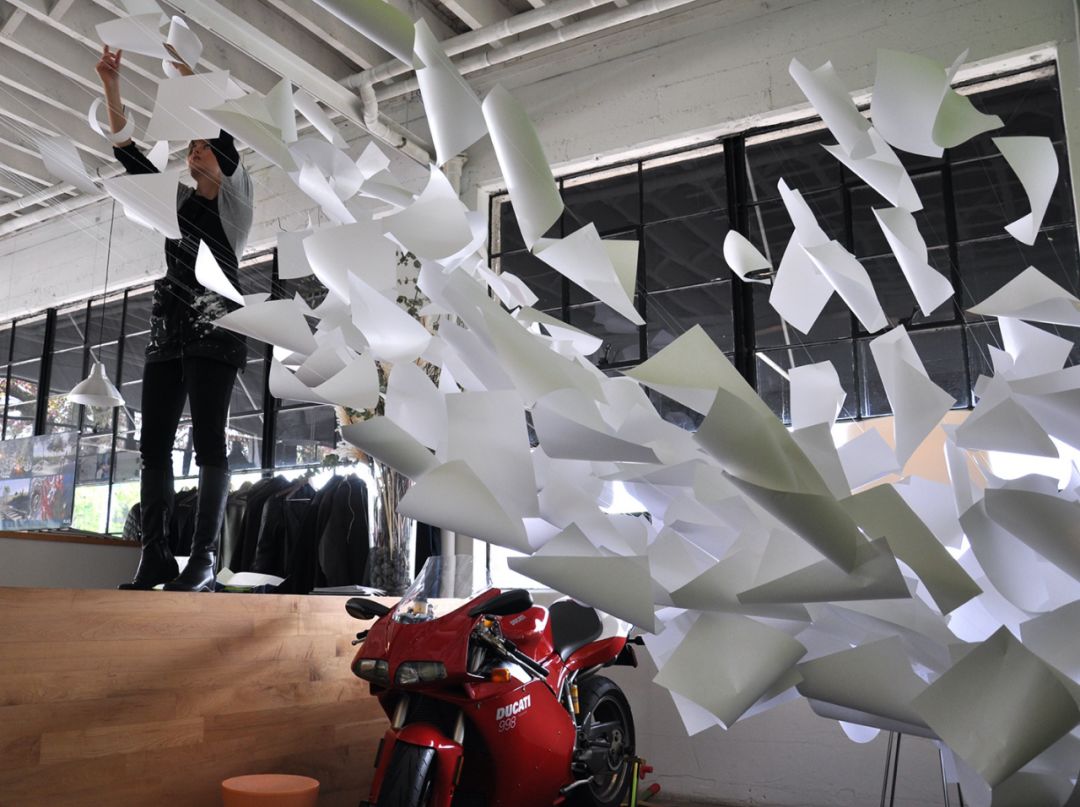
M:There are many reasons, I love riding motorcycles. It is something that I've done since I was 15 years old. A way to release energy. I love going fast and I love playing on the motorcycles. I take them to the racetrack or drive them across beautiful landscapes from Portland to Washington DC.
The other aspect is that everything we do and everything that is around us at PLACE is based on good design and on the creation of beautiful things - the creation of a cup, creation of a motorcycle, creation of a coffee pot, creations of a place. Everything that surrounds us, has an intent, a purpose and a thought behind it. Similarly, the motorcycles are beautifully made. So in one way, they're utilitarian, a piece of machine. But in another way, motorcycles are beautiful pieces of art. Designers thought about it and craftsmen built it by hand. Somebody created beauty. Motorcycles are in our studio because, in one way, they're just a tool and in another way, they're artistic expressions. We love to be surrounding with good ideas, good design, good people, and good inspirations.
█ 為什么你們給事務(wù)所命名為“PLACE”?
Why did you name the studio as “PLACE”?
M:十多年前我們在籌備成立事務(wù)所的時候,當時的四個合伙人和兩個員工為了想設(shè)計事務(wù)所的名字思考了很長時間。最開始,我說:“可以叫Villarreal, 但是估計沒人知道怎么念。”(開個玩笑啦(笑)),但我們又不想以我們的姓氏首字母來命名作品,所以我們就自問:我們是做什么的?我們?yōu)槭裁匆獜氖戮坝^設(shè)計實踐?我們對創(chuàng)意的熱情和追求源于什么?我們?yōu)槭裁磩?chuàng)立這個事務(wù)所?我們想要實現(xiàn)什么?通過這些問題我們得出了一個核心思想:我們創(chuàng)造空間——人們享受的空間,所以我們的事務(wù)所就應(yīng)該叫PLACE。這是一個非常民主和令人興奮的過程。
說真的,合伙人和我們兩個員工討論過,說我們是不是應(yīng)該叫Earth,Wind或者Fire?還是應(yīng)該叫 Water或者 Green(笑),因為水是維系我們?nèi)粘I畹囊粋€很重要的部分。我們很多對話還圍繞著我們該怎樣、該如何來保護我們的自然資源。我們不僅應(yīng)該創(chuàng)造讓人們享受的環(huán)境,還應(yīng)該創(chuàng)造那些可以反映出人們的、社區(qū)的以及人類群體想要創(chuàng)造出美好有趣事物的愿景的環(huán)境。
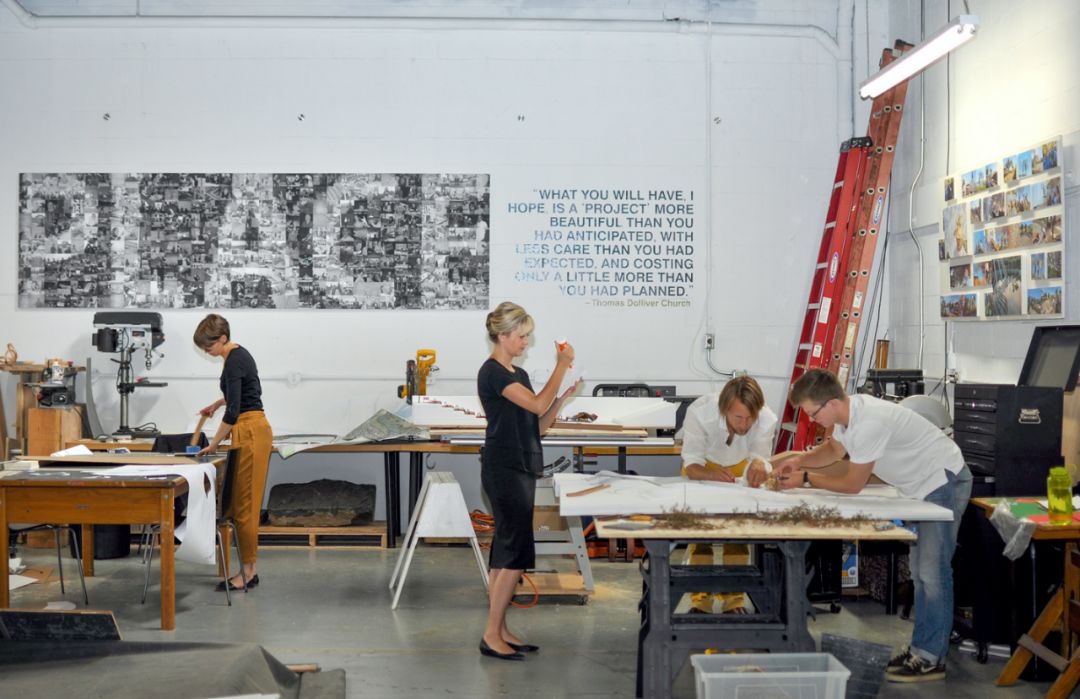
M:When we started the studio in 2010, we wondered about the studio name. The four partners and two employees that we had at that point literally sat down around a table and spent a week exploring ideas. At first, we said ‘it could be called Villarreal, but nobody would be able to pronounce it.’ No, I didn't really say that (laughs). But we didn't really want the practice to be named after the letters of our last names -J K L N B-something in that order. So we focused on what is it that we do? Why is it that we practice landscape architecture? What is at the core of our passion and desire to engage in a creative process? Why are we creating this studio? What is it that we want to achieve? And then the conversation leads us to the fundamental idea - we create places - places for people to enjoy. Our name should be PLACE. It was a very democratic and exciting process.
Literally, the partners and our two employees discussed if the name should be Earth, Wind, or Fire? Should it be Water and Green (Laugh)? Water is such a big part of our lives and a lot of conversations focused on what and how we do our work to protect natural resources. We create environments for people to enjoy, environments that reflect people's goals, community goals, and reflect our collective desires to create something beautiful and interesting.
█ PLACE 在新加坡、北京、西雅圖和波哥達等地都有分部。你們是如何管理不同的事務(wù)所?各個事務(wù)所之間又是怎么協(xié)作的?
PLACE has branch offices in Singapore, Beijing, Seattle, and Bogota. How can you manage the different studios? How do those studios coordinate?
M:連接我們各個事務(wù)所的重要元素是因共同的理想而建立的友誼。我們設(shè)計事務(wù)所之間的合作不是基于單純的商業(yè)模式,而是在友誼的基礎(chǔ)之上對于創(chuàng)意美學(xué)的追求。事實上,在決定開這些事務(wù)所之前,領(lǐng)導(dǎo)這些事務(wù)所的每個人都是我們認識的同事,他們都在波特蘭總部工作過也都熟知PLACE的文化。他們理解我們的工作方式并且認同我們的設(shè)計過程。但由于種種原因,這些同事需要在不同的地方工作,他們聯(lián)系我們說:“我們希望能繼續(xù)合作”,我們回復(fù)“我們也很想你們,不如我們在你的所在地也成立一個辦公室?”。就像和我們成功合作的董事Phoebe Bogert一樣,她在波特蘭工作了幾年后搬去西雅圖與家人同住,后來我們就決定在西雅圖成立辦公室。
所以這些與我們合作的伙伴都理解PLACE的文化和目標,并且我們在不同的場合下都有過合作。因此我們不會通過發(fā)布廣告招聘來開新的事務(wù)所,我們更愿意在現(xiàn)有的友誼基礎(chǔ)上發(fā)展。事務(wù)所間的日常工作協(xié)同主要集中在溝通交流上,Carol也一直強調(diào)跨公司信息的公開透明性和即時性。另外事務(wù)所的所有事情都是即時處理的,這也讓我們有效的保持了對工作的熱情,盡管有時也會不可避免地遇到挑戰(zhàn)。
M:The important element about our studio networks are friendships. Our studio in Singapore, studio in Beijing or Seattle, were not rooted in a business model, but in a friendship model. So what does that mean? The people that lead each one of these studios are colleagues we knew before we decided to open the studio. They have worked in Portland and know PLACE culture. They understand how we work and they believe in how we approach design. For a variety of reasons, these colleagues simply opted to practice in different geographic locations. They approached us with: “We want to continue to work together,” and we said: “We miss you too. Why don't we open a studio in Singapore or Seattle?” as we have accomplished in a collaboration with Phoebe Bogert, Principal. She worked in Portland for several years before moving to Seattle to be with her family. That's a very important part of the story. The people we partner with, know us and have worked with us on numerous occasions. They understand the studio culture and the goals of PLACE. We don’t go around the work with an advertisement to open a new studio. We prefer to build on existing friendships. Beyond that, daily work focuses on communication. One of the things that Carol stresses all the time is transparency and instant communications across studios. Anything in the studio is dealt with in real-time. That has allowed us to be effective at maintaining enthusiasm and excitement for the work. No question about it, there are challenges sometimes.
█ 所有的合伙人在創(chuàng)立PLACE之前都有著非常豐富的工作經(jīng)驗,是什么契機讓你們成立自己的事務(wù)所?
The Principals have rich working experiences before starting PLACE. What was the motivation to start your own studio?
M:這樣我就有地方安置我所有的摩托車了。(笑)
C:其實有三個原因。第一,從事設(shè)計是我們所有工作的核心,包括設(shè)計事務(wù)所本身。在物質(zhì)空間層面上講,我們的設(shè)計事務(wù)所其實是我們與相關(guān)社群的共享資源。其次,以這個核心為基礎(chǔ),還有其它兩個層面:一是與學(xué)術(shù)界的聯(lián)系,我們以此為據(jù)點在本地和全球范圍內(nèi)開展教學(xué)實踐;另一個是我們在事務(wù)所的模型室可以制作包括手工模型,甚至是1:1的模型,這也是我們的特色之一。
M:我們對于設(shè)計實踐和事務(wù)所空間的思考應(yīng)該是別具一格的,因為我們幾乎是在“最佳時機”開始的實踐。那是2010年,正是美國經(jīng)濟衰退期(笑)。當時所有人都覺得我們根本是瘋了,我們有著很好的工作,卻在眾多景觀事務(wù)所因為沒有項目而裁員的時候選擇開始新的設(shè)計實踐。我們希望提供與眾不同的服務(wù),并在每個項目中投注精力去塑造公共關(guān)系,去創(chuàng)造一種社群意識。
M:So, I can park all my motorcycles (Laugh).
C:It was really three things. First, the design at the center of everything we do, including the studio itself and the way it looks.
The physical space. Our studio is a resource for us and for our community. Then, from that physical center, two other things. One is the connection to academia; we teach locally and globally. Finally, it is the studio’s workshop with a hands-on approach to design including a 1:1 scale model, which is very unique.
M:We think differently about our studio space and our practice. We started our practice at the best time possible; in 2010, in the midst of the US recession (Laugh). Everybody thought that we were completely crazy since we had good jobs and yet decided to start a new practice while LA firms were laying off staff and had no work. However, we desired to provide services differently; building on relationships and creating a sense of community with a lot of attention to each project.
█ 事務(wù)所開始運作之后,如何實現(xiàn)好的團隊合作和公司發(fā)展?
How did you run the studio and the business?
C:從專業(yè)設(shè)計和商業(yè)模式的角度來看,我都覺得這次創(chuàng)業(yè)是一次很好的嘗試。我們想通過發(fā)掘傳統(tǒng)文化遺產(chǎn)的魅力來進行景觀設(shè)計實踐。Mauricio先生來自哥倫比亞,而我來自克羅地亞,我們覺得如果只在波特蘭本地實踐范圍就太小了,所以我們就決定與世界各地的朋友和同行建立聯(lián)系。最初我們都對采用這種國際化實踐的可能性抱有好奇和懷疑,我們不敢想象我們能在歐洲、拉丁美洲和亞洲有項目。所以很感謝我們所有的同事和客戶愿意信任我們并給我們這些機會,而我們也致力于穩(wěn)固我們之間關(guān)系。因此當我們在做這些項目的時候,我們將其視為自己的一種延伸,我們希望無論項目是何種規(guī)模、尺度或是位于何處,我們都能確保做到最好。
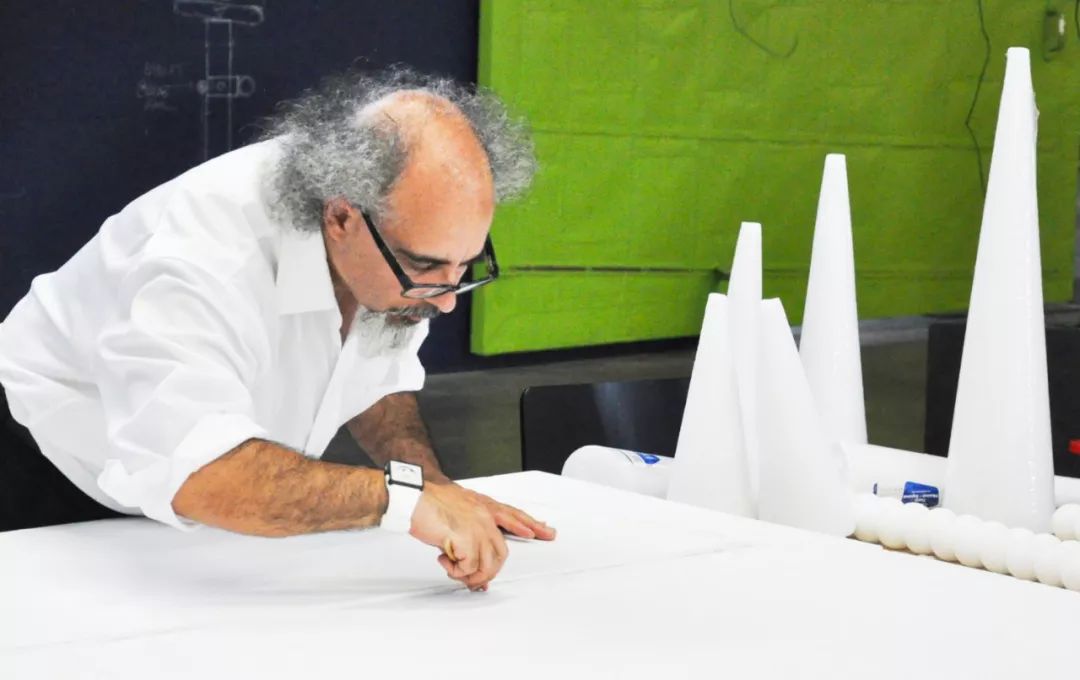
C:It was a great idea from the professional design perspective as well as the business model perspective. We wanted to practice landscape architecture by celebrating our cultural heritage. Mauricio is from Colombia, and I am from Croatia. Practicing in Portland felt exclusively small. We wanted to reach out to our friends and professional colleagues around the world. Initially, we were curious about possibilities or experimenting with international practice. We couldn't possibly dream that we would have projects in Europe, Latin American, and Asia. Thanks to all of our colleagues and our clients who have given us the vote of confidence and gave us a try. We are committed to these relationships. So, when we work on projects, they are an extension of us, we want to make sure we give it our best every single time, regardless of a scale, scope, or location.
03 / Design Philosophy
設(shè)計理念
█ PLACE的設(shè)計理念是把傳統(tǒng)景觀設(shè)計實踐與尖端技術(shù)和前沿創(chuàng)意相結(jié)合,那么你們是如何詮釋這種關(guān)系的?
Your design philosophy is about connecting the cutting-edge ideas and technology with the traditional landscape architecture practice. How do you define the cutting edge and traditional landscape practice?
M:在創(chuàng)立PLACE之初,我們的腦海中就已經(jīng)有了一些既定目標。首先,設(shè)計是我們實踐中的核心要素,同時,不論是與藝術(shù)家合作還是我們自己創(chuàng)作作品,藝術(shù)都對我們有著很大的啟發(fā)和影響。但有時候景觀設(shè)計師并不被認為是藝術(shù)創(chuàng)作中不可或缺的一部分,在項目協(xié)作時客戶可能會說:“太好了,那我們就直接請一個藝術(shù)家來做吧” ,盡管這樣,我們還是更傾向通過合作,通過與跨界團隊相互交流想法來完成它。同理,合作與教學(xué)對我們也有著重要的意義。與社群的合作中讓我們有機會了解當下境況,了解什么是對社會和世界至關(guān)重要的事情,這一點非常關(guān)鍵。同時也給了我們一個探索自我和促成新體驗的機會。在學(xué)術(shù)方面,我認為了解最前沿的事物和思想是很重要的。在大學(xué)教書時,與你打交道的都是20多歲的年輕人,他們用完全不同的方式思考這個世界,這也為我們打開了新的視角,而不是一遍遍的用同一種過時的方法來進行實踐。
我從事景觀設(shè)計已經(jīng)有31年了,我經(jīng)常以近乎固定的方式去拿筆和畫畫。我時常想,如果換一種方式會怎樣呢?在與學(xué)生一起探索實驗的過程中,我發(fā)現(xiàn)他們沒有預(yù)先的判斷也不會有特定的期待,因此會讓我們用一種新的方式去思考。這種合作為我們帶來了積極的影響并促進了我們與社區(qū)之間的互動,同時也改善了我們工作和設(shè)計的方法。
傳統(tǒng)意義上,人們會傾向在一個安靜的空間享受時光,那里要有一個可以坐的地方,旁邊還要有一棵漂亮的樹來遮蔭。這很好理解,我們可以將開放空間解構(gòu)成一個長椅和一棵樹,或者一個長凳和一把陽傘,這些表達了開放空間的氛圍是放松或休閑的。從這里開始,景觀設(shè)計師的設(shè)計實踐就可以朝多個方向展開:長椅可以是一塊質(zhì)樸的木頭,可以是一塊精美的大理石,也可以是一個非常復(fù)雜的設(shè)計元素;遮陽物可以是一棵樹或是一個非常復(fù)雜的構(gòu)架。但設(shè)計的本質(zhì)始終是一致的:人們就是喜歡待在戶外,喜歡舒適,這一點不必過度解讀。但我們可以根據(jù)項目的不同目標來選取相應(yīng)的元素并加強設(shè)計的存在感。
C:為了強調(diào)設(shè)計的過程,我們在事務(wù)所設(shè)立了模型室,這樣我們就可以在不同比例下用多種材料來進行實踐,甚至是制作1:1比例的設(shè)計模型都沒問題。而且工作坊距離每個人的辦公電腦只有2米,我們可以迅速地將電腦上的數(shù)字模型轉(zhuǎn)化成手工模型。我們時不時還會在事務(wù)所和學(xué)生們一起探索新想法。
當你走進我們事務(wù)所的時候會發(fā)現(xiàn)我們是沒有前臺接待的,那些陳列在展廳中的藝術(shù)品會代替前臺“歡迎”你。而且任何附近社區(qū)的居民或者街上的行人都可以走進來欣賞我們展示的藝術(shù)品,它們會不時進行更新和替換,這也是我們?nèi)诤仙鐣鹘y(tǒng)與現(xiàn)代元素來啟發(fā)我們的日常工作的一種途徑。PLACE的實踐不僅是讓景觀設(shè)計師們坐在電腦后面進行項目設(shè)計,更是一種通過跨界融合來啟發(fā)創(chuàng)意的過程,而且我們的工作過程需要喚醒并調(diào)動所有感官,而不僅僅只是關(guān)注于商務(wù)。
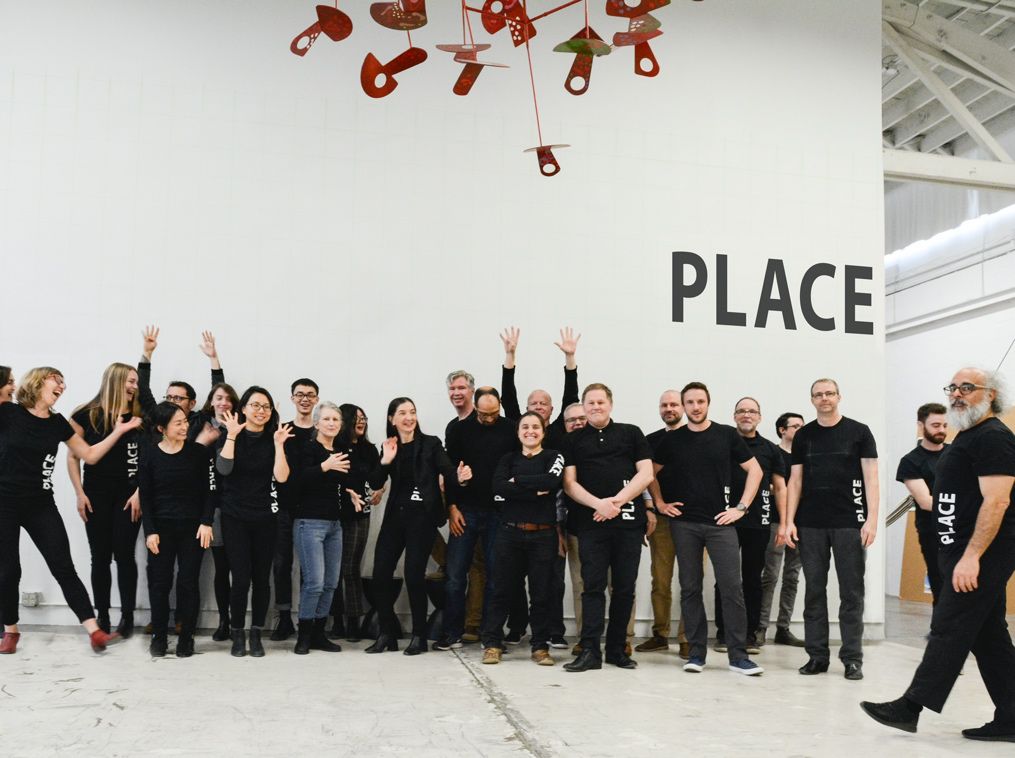
Group Photo
M:When we started PLACE, we had a couple of goals in mind. The design was an integral element at the core of our practice. Art was also a big influence. Art, either by collaborating with artists or developing our own creations. At times, landscape architects are not considered integral to art-making. Despite the collaborative process, clients may say: “That's great. Let's hire an artist.” We prefer a collaborative process, exchanging great ideas with interdisciplinary teams. Similarly, teaching is very important to us. Working with the community allows us to remain current and understand what is important to society. Seeing what's happening around us in the world is paramount, providing us opportunities to offer a personal interpretation and facilitate a new experience. The academia, I think, is a great influence on understanding what's cutting edge. When teaching at a university you're working with young people. 23, 24, 25-year-old young students that think about the world in a completely different way. It opens our eyes to new perspectives rather than practicing in the same old way, over and over.
I've been doing landscape architecture for 31 years now. I realize that I often draw and take a pencil in the same way. However, what if I take a pencil in a new way? What would that mean? So, students are great for experimenting with us because they make us think in a new way. They have no judgment and no expectations. In return, our collaboration provides us with new influences and engagement with the community. Collective input makes a change in our work and approach to design.
Traditionally, people wanted a place to sit, a little bit of shade by a nice tree, and a calm space to enjoy. It was very simple. One could distill an open space to a bench and a tree. Or a bench and an umbrella. The idea of claiming open space for relaxing or taking a break. From there, landscape architects may take practice in numerous directions. The bench can be a simple piece of wood. It can be a beautiful piece of marble. It can be a very complex design element. The shade can be just a tree or it can be a very complex structure. The essence of it is always the same. I think people just love to be outside; love to be comfortable. It doesn't have to be complicated. However, we can take essential elements and amplify design depending on the goals of the project.
C:To amplify the design process, we have set up our studio with the workshop where we can build working models to 1:1 scale design features. The workshop allows us to work across a variety of scales and materials. Our team members can walk five feet away from their computers and quickly translate digital ideas into a built form. We also use the studio to explore new ideas with the students.
When you first walk into our studio, there is no reception to greet you. Instead, you are immediately greeted by artwork displayed in our Galeria. So anyone from the community, anybody from a street can walk in and enjoy the artwork that it's continuously evolving and changing. It is also how we blend the traditional and contemporary aspects of society to inform and inspire our daily lives. It is not just having a number of landscape architects sitting behind the computers and working on projects. It is about blending disciplines together to celebrate and inspire the creative process. Our studio practice requires awakening and engaging all the senses rather than just focusing on a business of landscape architecture.
█ 您能否與我們分享您對于PLACE專注于“人類”,“地球”和“和平”的見解?
Can you share with us your insights into PLACE’s focus on People, Planet and Peace?
C:可以說我們的實踐就是為人們提供場所,因此公司命名為PLACE – 也是旨在為人們創(chuàng)造美好的場所。我們創(chuàng)造的第一個場所就是我們的事務(wù)所和我們的企業(yè)文化。然后我們希望通過與各種各樣的人建立聯(lián)系來復(fù)制和傳達它。我們最關(guān)心的就是我們的事務(wù)所,我們的員工和我們的家庭。如果一切進展順利,我們可以將關(guān)系和聯(lián)系擴展到我們的客戶。我們努力建立友誼,在北京、新加坡、東京和波哥達的合作網(wǎng)絡(luò)都是建立在那些我們認識并且有著數(shù)十年交情和專業(yè)合作的朋友上。如果項目機會出現(xiàn),無論在世界上的哪個角落,我們都會和我們的朋友們?nèi)〉寐?lián)系并一起參與其中,如果所有人都達成共識愿意開展這個項目,那將是一件很棒的事情。有時幾年過去了我們才等到下一次機會,但是對我們來說時間仿佛沒有流逝一樣。因為我們沒有預(yù)期,所以只有歡樂。我們堅信我們可以將學(xué)術(shù)界和學(xué)生聯(lián)系在一起并回饋社區(qū),因此我們大部分的項目都是公共項目,我們很享受和客戶乃至全世界范圍的人們合作。
C:Our practice is about placemaking for people. The company name is PLACE - it’s about making great places for people. One of the first places we created was our own studio and its culture. Then we desired to replicate it by connecting people. Our studio, our people, and our families are our first priority. If that is going well, then we may extend the relationships and connections to our clients. We strive to create friendships. The networks in Beijing, Singapore, Tokyo, or Bogota are with people we have known and enjoyed personally and professionally for decades. If the project opportunity comes up in a corner of the world, we reach out to our friends to play together. If agreeable to all - fabulous. Sometimes years pass prior to a next opportunity and yet it's just like no time has passed. No expectations; just fun. We strongly believe in connecting the world of academia, students, and giving back to the community. The majority of our work is for public projects. We enjoy partnering with clients and engaging people worldwide.
█ PLACE事務(wù)所的室內(nèi)設(shè)置、模型和草圖給我們留下了深刻的印象,和常見的事務(wù)所非常的不同。正如我們研討的,在當前電腦渲染泛濫的趨勢下,有時學(xué)生只是用電腦來繪制精美的圖紙但卻從未思考過空間的真實樣貌。
We were impressed by the models, sketches, the studio settings. It's very different from other firms. And we were talking about the current trend of using computer renderings. Sometimes students are just using the computer to make pretty images but they never think about how the place really looks like.
M:數(shù)字技術(shù)確實有可能帶來問題。今天的學(xué)生們幾乎個個都是電腦奇才,他們可以畫出非常漂亮的圖紙,但是也可能會沉溺在這些工具中。我們常常提醒他們始終要保持對創(chuàng)意過程、客戶和用戶的重視。誠然,好看的圖紙可以描繪出一個烏托邦,做圖過程中的某些環(huán)節(jié)可能對于創(chuàng)造夢想或愿景至關(guān)重要。讀書其實是一種做夢的過程,這也是讀書的美妙之處。在這個過程中沒有客戶、沒有預(yù)算、沒有時間表,由此帶來的開放性是非常有趣的,對鍛煉大腦也是至關(guān)重要的。然而,在學(xué)校也是進行探索的絕佳時機,在這個過程中你也需要意識到作為景觀設(shè)計師是有比畫出好看的圖更大的責(zé)任的。這也是好設(shè)計之所以廣受好評的原因——一種對人類行為、環(huán)境、自然和附近周遭的理解,以及這些要素是如何共同創(chuàng)造出對每個人都意義非凡的一個瞬間。這個場所是為一個人服務(wù)?或是兩個、四個人?一百個或者一千個人?是為今天,為明天還是一百年后的今天?這就是景觀設(shè)計的美,我們被賦予了為子孫后代創(chuàng)造雋永場所的特權(quán)。這個場所也許我的孩子、甚至孩子的孩子依然會使用,會享受——公共開放空間將會變成公眾元素以及城市的一部分、一個地點的某種象征、和一群人的某種象征。
C:享有在本地和全球開展不同尺度項目的設(shè)計機會也為我們帶來了一種對人類、歷史和文化及其對環(huán)境的影響的理解,特別是身處我們現(xiàn)在生活的時代。氣候變化是一個迫在眉睫的現(xiàn)實問題,作為一個景觀設(shè)計師我們必須主動承擔(dān)領(lǐng)軍者的角色,相互學(xué)習(xí),并站在推進這些相關(guān)方面社會進步的最前線。
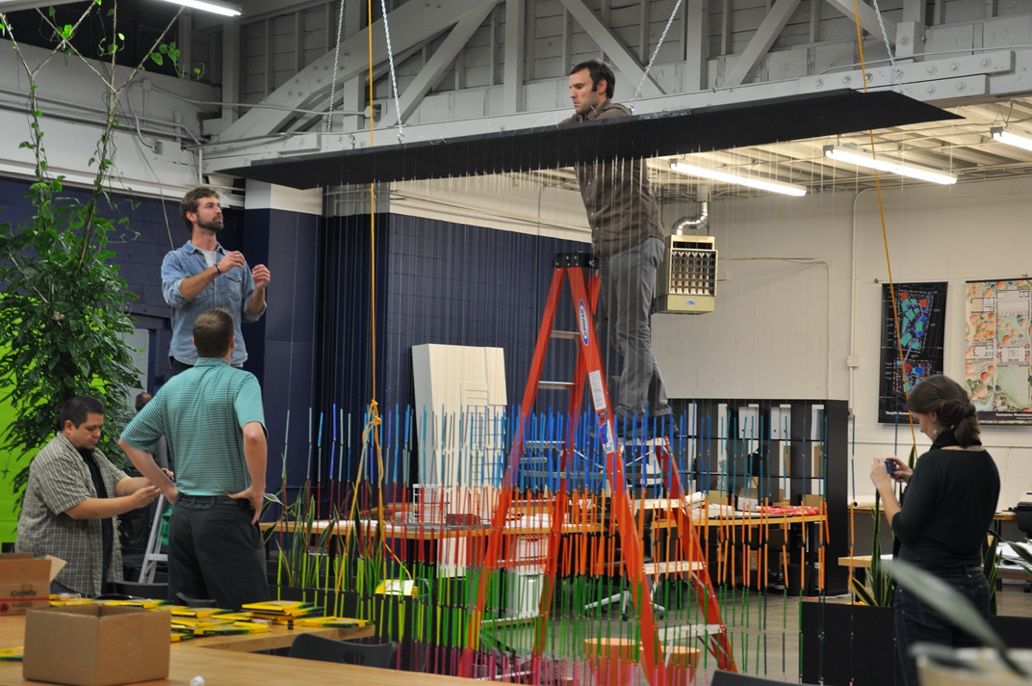
M:Digital technology has the potential to become a challenge. Today’s students are ultimately computer wizards. They can create beautiful images. Yet, they might fall in love with tools. We often caution them to remain focused on a creative process, clients, and users.
Graphics could become a make-belief. A part of the graphic process is essential to create a dream, a vision. Going to school is about dreaming. That's the beauty of it. There's no client, there's no budget, no schedule. Letting loose is super fun. Exercising that part of the brain is crucial.
The school is a perfect moment for exploration. Along the way, you also need to realize that the landscape architect has a responsibility beyond creating a pretty picture. That's what makes a design good – an understanding of peoples’ behavior, understanding the environment, understanding of nature, understanding of the surroundings and how they come together to create a special moment for each individual. Is the placemaking only for one person? Two people? Four people? 100? 300? 3000? Is it for today, for tomorrow, a hundred years from today?
That's the beauty of landscape architecture. We are privileged with opportunities to create timeless places for generations to enjoy; that my kids and my kids’ kids will be using and enjoying - public open spaces that will become civic elements, a part of the city, a part of the identity of the place, and a part of the identity of people.
C: Having the privilege to work in different scales locally and globally comes with the responsibility of understanding people, history, culture and impacts on our environment, especially in the times that we live now. Climate change is an important reality. As landscape architects, we must embrace leadership roles to learn from each other and be at the forefront of progress in our society.
04 / Design Practice
設(shè)計實踐
█ 恭喜你們獲得了ASLA專業(yè)獎,可以和我們分享一些你們對這個項目的見解嗎?
Congratulations on the ASLA professional award. Can you share some insights about this project with us?
M:謝謝。Hassalo on Eighth 是一個的“環(huán)境友好”型項目的典型案例,它包含了我們剛才談到的所有要素,同時也是基于多年友誼進行合作的案例的很好體現(xiàn)——這個項目中包含我們的客戶AAT以及我們在GBD建筑事務(wù)所認識了24年的朋友。基本上景觀行業(yè)中的人際關(guān)系以及對我們創(chuàng)造出具有持久價值的事物的信心是很重要的。我們的目標是為新的場所創(chuàng)造鮮明的身份和社區(qū)歸屬感。
這個項目位于一個70年代設(shè)計的城市區(qū)域,以商務(wù)塔樓和停車場為主。你的游覽路徑基本上是:把車停在地面停車場,然后上樓去辦公室上班,下班后開車回郊區(qū)的家里。時至今日,這片區(qū)域已經(jīng)被改造成了一個生態(tài)友好型社區(qū)。我們的客戶、也是開發(fā)商——AAT和整個團隊相信,在這里能夠創(chuàng)造出一個可以長出新社區(qū)的“根系”。通過將三塊以瀝青鋪地為主、車行優(yōu)先的街區(qū)轉(zhuǎn)換成以人為本、提倡騎行、充滿生態(tài)棲息地的社區(qū),打造成一個所有人都會產(chǎn)生家的歸屬感的新場所。這是一個非常令人期待的情景。
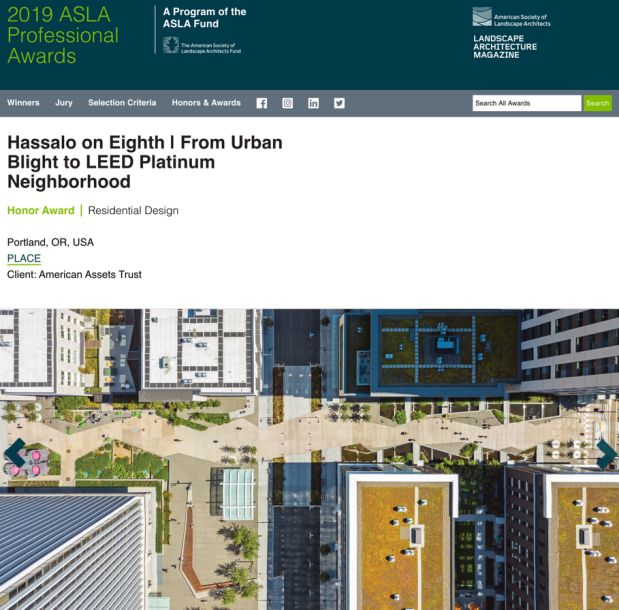
M:Thank you. Hassalo on Eighth is a great environmental project example; of all the things that we're talking about. It's a good example of a project created in partnership with our client American Assets Trust and passionate collaborators and friends at GBD Architects led by a Design Principal, Kyle Andersen, we've known for 24 years.
Basically, relationships in this business are very important along with the trust of creating something new of lasting value. The goals are to create a strong identity for a new place, to create a community.
That project is in an urban area designed in the 70s, with the concept of business towers and parking lots. You park a car on a surface lot, go up to an office and at the end of the workday, drive home to a suburb. Today, these parking lots have been transformed into a community and an eco-district neighborhood. Our client, the developer, The American Assets Trust, and the whole team believed in creating something that can serve as root to a new neighborhood. It's a really exciting vision to translate three blocks of asphalt and cars into human-centered neighborhoods vibrant with bicycles and habitats - a new place people call home.
█ 在參觀Hassalo on Eighth的時候,我對之字形的模塊和水街留下了很深的印象,它們和周圍的環(huán)境非常不同。這個設(shè)計語言背后的靈感是什么呢?
When visiting Hassalo on Eighth, I was impressed by the zigzag pattern and water street. It's very different from the surrounding environment. What's the inspiration behind this design language?
M:我們想要創(chuàng)造一個具有鮮明特征和標志性又讓人難忘的場所。水街是我們?yōu)檫@個新項目的主軸線所創(chuàng)造的元素,隨著社區(qū)的不斷發(fā)展,我們希望這個水街可以持續(xù)地將不同的街區(qū)聯(lián)系在一起。同時,水街也是我們西太平洋多雨的環(huán)境和可持續(xù)發(fā)展的象征。我們認為,雨水和污水的處理在景觀上應(yīng)該是可見的,這是一種環(huán)境資產(chǎn)而不是見不得人的功能元素。因此水系統(tǒng)被強調(diào)并展現(xiàn)成這個項目的核心。當你在自然中漫步時,你可以體驗到這個系統(tǒng)清潔和修復(fù)的能力。另外,這個系統(tǒng)還具有一種環(huán)境教育的目的。我們所運用的NORM(天然有機回收機器)背后的科學(xué)原理是,通過分散處理及再利用系統(tǒng)來將三座新建筑物中產(chǎn)生的廢水100%處理掉,而非直接排入市政下水道。此外,種植池也可以作為生態(tài)棲息地和水源處理區(qū)。你需要全面地去看待它。
C:Hassalo on Eighth的精彩之處在于它是波特蘭環(huán)境復(fù)興使命的某種象征。作為個體,一個人可能很難改變世界,但如果我們可以與Hassalo on Eighth這樣的先進社區(qū)合作,就可以通過集體的努力來實現(xiàn)更大的目標,這也是Hassalo on Eighth項目成功背后的思考。
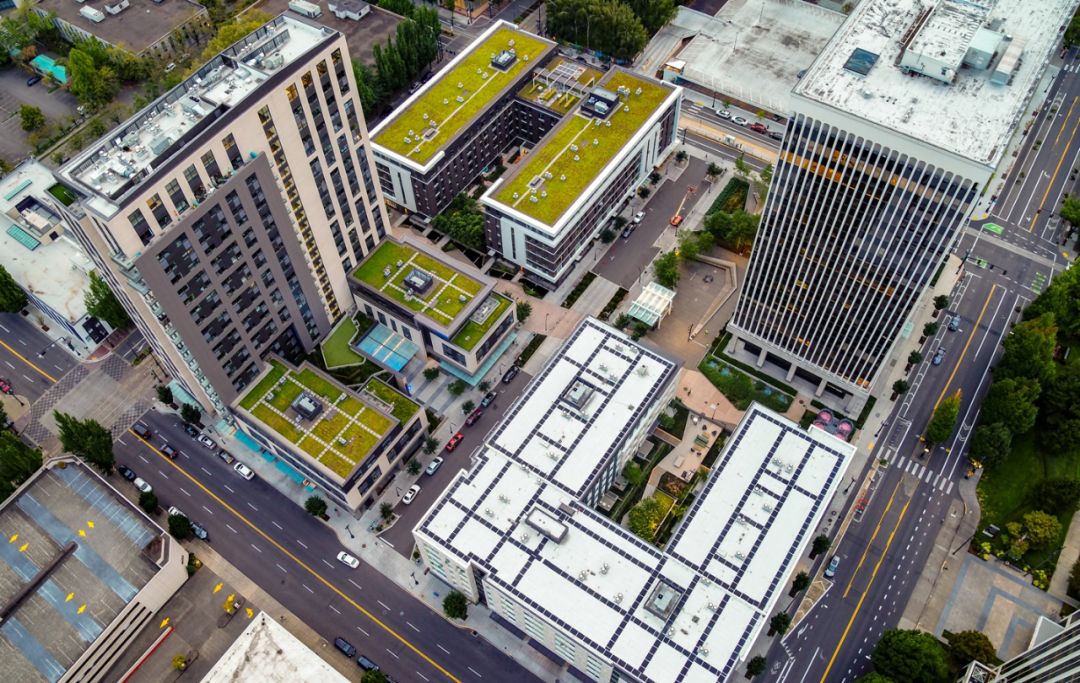
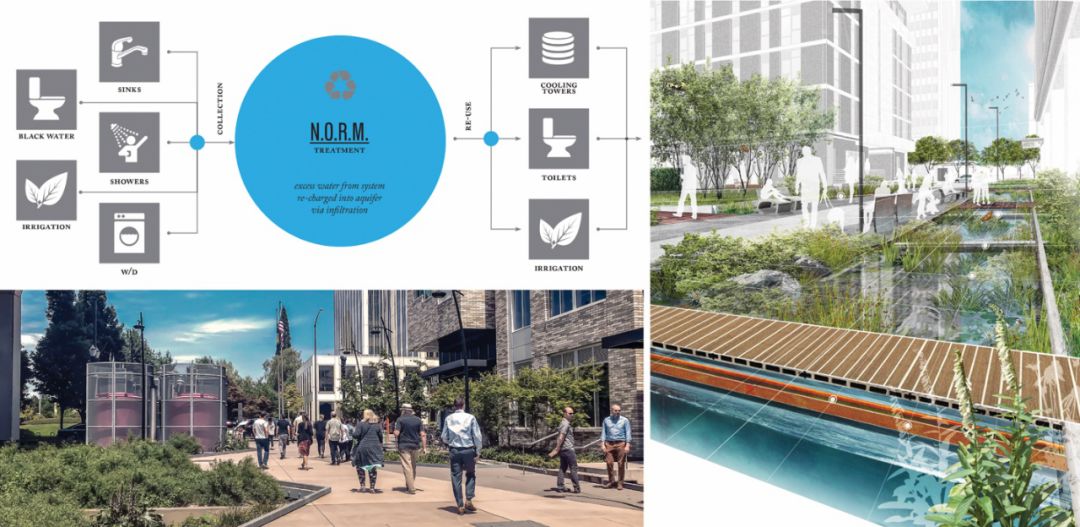
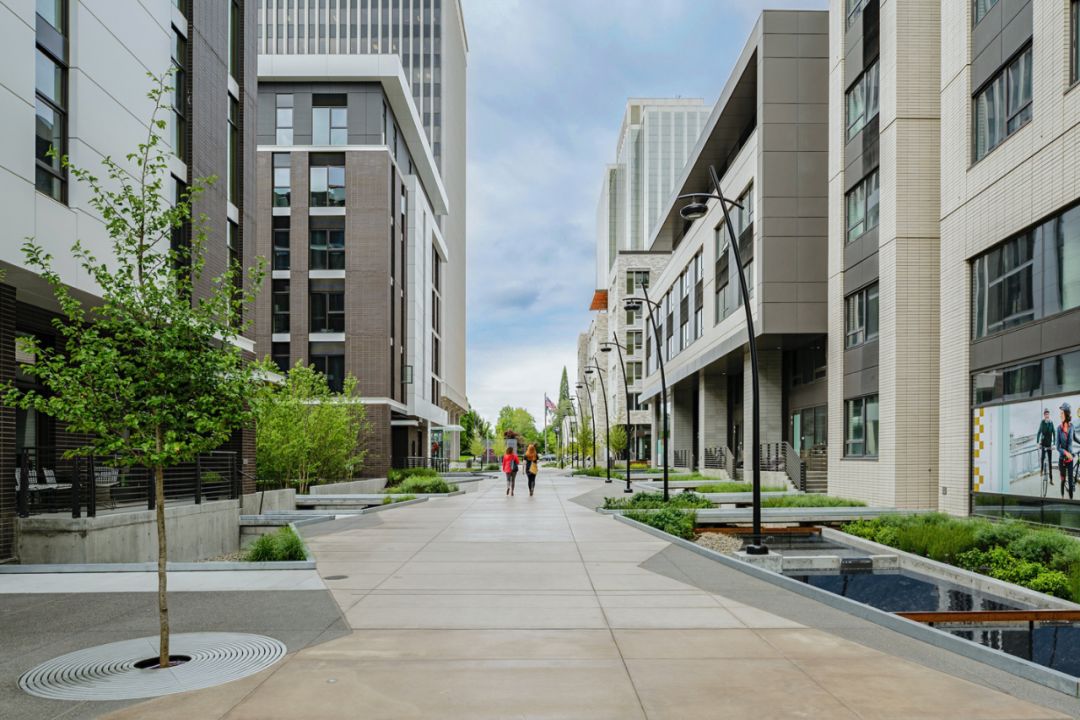
Hassalo on Eighth
M:We wanted to create an iconic and memorable place with a unique identity. Water street is an element that we created as the spine of the new development. As the neighborhood continues to develop, the aspiration is that the water street continues to tie one blocked to another.
The water street is symbolic of our Pacific Northwest rainy environment as well as sustainability. The treatment of the rainwater and the black water is visible in the landscape. It's an asset instead of a utilitarian element to hide. The water system is actually amplified and showcased as the epicenter of the development. As you walk within nature, you experience its power of cleansing and restoration. The system also has an environmental education purpose. The science behind the NORM (Natural Organic Recycling Machine) is to decentralize treatment and reuse system to divert 100% of the wastewater generated in the three new buildings away from the municipal sewer. The planting bed also serves as a habitat and a water treatment area. You just think about it 3-dimensionally.
C:What's awesome about Hassalo on Eighth is emblematic of Portland’s environmental agenda. As an individual, one might not be able to change the world; however joining with a progressive community like the Hassalo on Eighth, collective efforts are leveraged to accomplish more. That's the idea behind the success of the Hassalo on Eighth.
█ Mauricio您曾經(jīng)在北京科技大學(xué)教書,可以分享一下你的教學(xué)體驗嗎?
As I know, Mauricio is also teaching at Beijing Technology University. Can you share with us the experience?
M:與世界各地的學(xué)生對話是一件很有趣的事情,因為每個不同的學(xué)術(shù)機構(gòu)會打開你的眼界和思維。北京的教學(xué)形式很正式,是一種演講的風(fēng)格。于我而言,與學(xué)術(shù)界的合作是我們工作中的重要方面,也是一個分享想法、創(chuàng)意與見解,影響固有思考方式的機會。我們相信通過去到不同城市,不同地點可以讓我們交換知識——我們在分享的同時也獲得知識。因此我認為在北京科技大學(xué)教書是一個雙向的過程。我們傳達自己的想法,同時也接納新的想法,在這種交流的過程中我們進行學(xué)習(xí)并且得到成長。
C:我們希望加強朋友和同行之間的聯(lián)系。作為波特蘭州立大學(xué)建筑學(xué)院的教授,我們也向包括北京在內(nèi)的全球同事和朋友發(fā)出了邀請,邀請他們來波特蘭訪問我們。
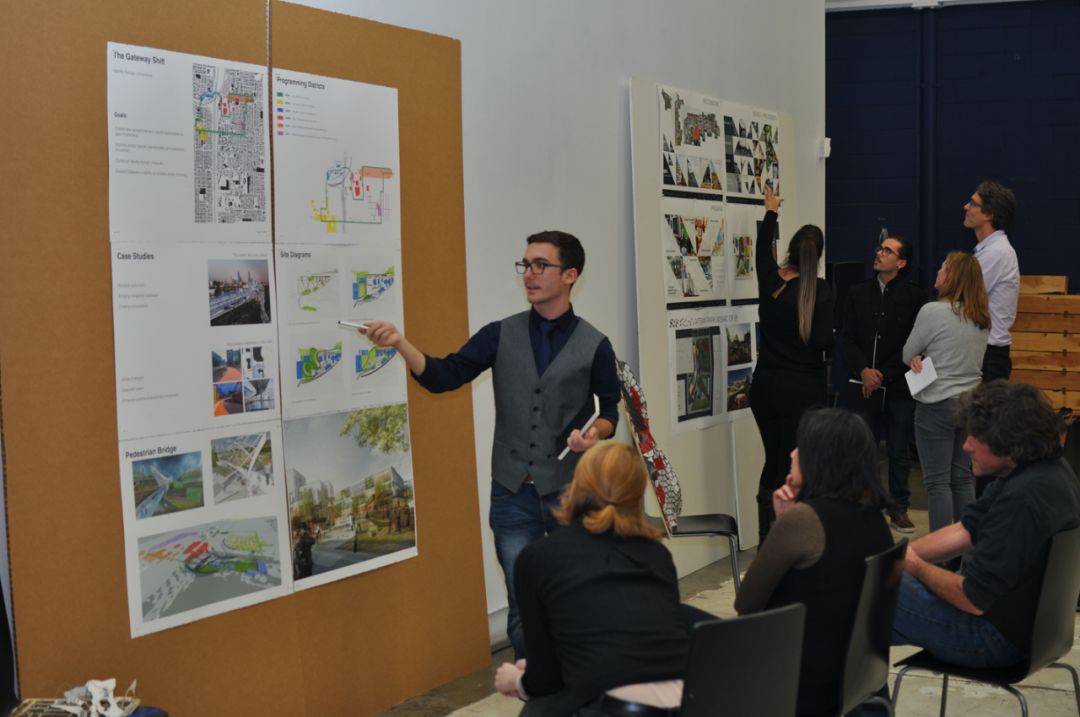
M:It is always interesting to engage students worldwide in a conversation. It opens your mind and your eyes because each academic institution is different. In Beijing, the format was somewhat formal, in a lecture style.
We consider engaging with academia an important aspect of our work. It is an opportunity to share thoughts, ideas, impressions, an opportunity to influence thinking. We believe that by going to different cities, different places, we exchange knowledge. We share and we acquire knowledge too. So being in Beijing at the prestigious university is a two-way street. We talk about ideas and we see and hear new ideas. The exchange process allows us to learn and grow.
C:As professors at the Portland State University School of Architecture we also extend invitations to our colleagues and friends worldwide including Beijing to visit us in Portland. We have a number of colleagues from China that have come to Portland State University and engaged local students. There is an ongoing exchange of ideas and we hope to continue building a network of friends and professional colleagues.
█ 你們有考慮過以設(shè)計課程的形式與海外學(xué)生和學(xué)校合作?
Have you considered working with international students in the studio format?
C:我們正在準備一個有實踐內(nèi)容的課程來讓學(xué)生接觸我們這個行業(yè),在中國我們也有計劃創(chuàng)立PLACE學(xué)院來吸引一小部分學(xué)生。我們的課程會側(cè)重環(huán)境問題和可持續(xù)性,將波特蘭環(huán)境管理和社區(qū)參與的價值體現(xiàn)進行傳播和輸出。我們最近幾年在日本做項目時發(fā)現(xiàn),我們能夠使公眾參與到公共領(lǐng)域的設(shè)計過程里。所以,我們打算在中國進行相同的實踐,看公眾能否引起共鳴。對于這樣的探索我們相信會很有意思。
M:公眾參與在太平洋西北地區(qū)特別是波特蘭,是我們設(shè)計實踐中占比很大的部分。這意味著很多設(shè)計和社區(qū)密切相關(guān),在設(shè)計過程中,社區(qū)居民和他們提出的意見存在感很強,我們也積極接納這個環(huán)節(jié)并使其成為我們設(shè)計的基礎(chǔ)。然而我們發(fā)現(xiàn),這在不同文化和地區(qū)并不是常態(tài)。在中國,人民習(xí)慣于由政府來主導(dǎo)公園設(shè)計,設(shè)計過程也反映出政府的制度。也許,如果社區(qū)居民能參與其中,人們會像在美國一樣感受到更強烈的主人翁意識。
C:We are in the process of preparing a curriculum with hands-on experience exposing students to our practice. The idea of creating PLACE academy in China engaging a small group of students. The curriculum would focus on environmental issues and sustainability, exporting Portland values of environmental stewardship and community engagement. We found that, for example, in the last few years, while working in Japan, we were able to engage the public in a design process of the public realm. It would be interesting to explore a similar effort in China and see if it resonates with the public.
M:Community involvement in the Pacific Northwest, especially in Portland, is a big part of our practice, meaning that a lot of the design happens very much hand in hand with the community, with the residents and their voices and presence are strong. We embrace the process and make it fundamental to design. However, as we go to different cultures, different places, many times, that is not the norm. In China, people are used to that the government leads a park design. The design process is a reflection of the government system. Perhaps, if the communities were involved, people would feel a greater sense of ownership like in the US.
█ 我認為在中國,作為一個景觀設(shè)計師去認真聆聽來自社區(qū)居民的聲音和政府的意見,并綜合這兩者的看法是很重要的。
I think it's especially important in China as a landscape architect to really listen to the community and also listen to the voice from the government and combine them together.
C:在中國,景觀設(shè)計行業(yè)還很“年輕”,設(shè)計實踐的過程還在不斷發(fā)展。
M:世界范圍內(nèi),年輕一代的設(shè)計師也在學(xué)習(xí)如何平衡眾多的利益相關(guān)者,在中國也是如此。
C:The landscape architecture profession is very young in China. The design process is evolving.
M: Worldwide, the younger generations are also learning to balance the multitude of stakeholders and the same is true in China.
█ 在中國有很多機會,環(huán)境與景觀市場也不錯。兩位也提到了PLACE在北京已成了事務(wù)所,可否介紹一下在中國的發(fā)展與實踐?
We have many opportunities and the market is pretty good. You mentioned that there's a PLACE studio in Beijing. Do you have projects in China already?
M:中國的發(fā)展可以用“驚人”來描述,建設(shè)發(fā)展的數(shù)量和速度讓人難以置信。能有參與這種有影響力的機會讓人興奮,如果真的可以參與構(gòu)建和創(chuàng)造有益于中國社會的項目我們真的充滿期待。
C:在如此宏大的城市規(guī)模和節(jié)奏下進行創(chuàng)新實踐,并創(chuàng)造獨特的景觀環(huán)境在世界范圍是前所未有的,而中國想要成為第一個試圖在大規(guī)模發(fā)展的同時具有進步性以及競爭力的國家,這對包括PLACE在內(nèi)的全球設(shè)計專業(yè)人士都是很有吸引力的。另外,PLACE與在中國建立同行間的聯(lián)系十分感興趣。從個人角度出發(fā),我們期待與了解中國歷史和文化的專業(yè)人員進行富有創(chuàng)意的交流,從而創(chuàng)造高品質(zhì)的設(shè)計項目。我們目前正嘗試與中國公司建立廣泛合作,并在我們的合伙人周鵬的領(lǐng)導(dǎo)下開展項目,我們期待PLACE的創(chuàng)意美學(xué)與中國文化碰撞出新的火花,非常感謝!
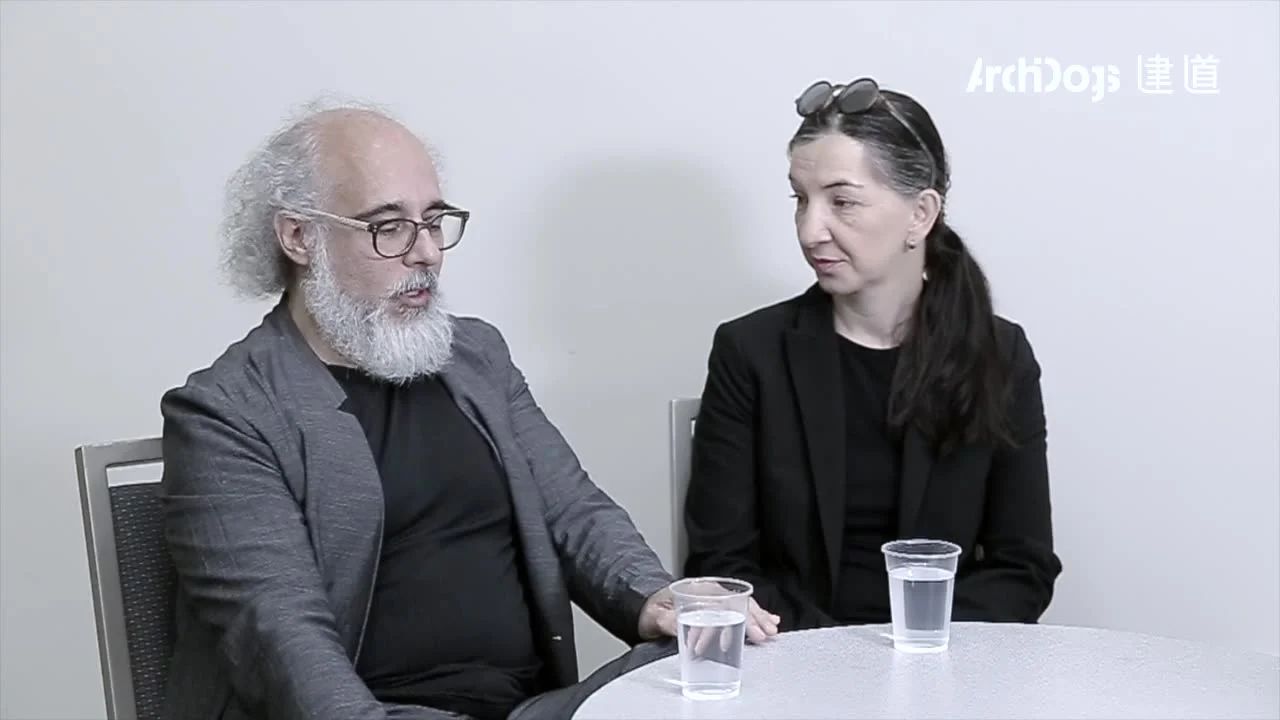
Interview with ArchiDogs at ASLA 2019 ? ArchiDogs
M: The opportunities in China are absolutely amazing. The amount of development and the pace at which it occurs is just incredible. Opportunities to be a part of this influence is really exciting. You can be a part of constructing and creating a narrative that will benefit Chinese society. It is just really interesting.
C:Willingness to innovate and create unique environments at such a grand urban scale and pace hasn't been done before. China’s desire to be the first, wanting a large scale, to be progressive and provocative is attractive to design professionals worldwide including PLACE. To establish a network of professional colleagues in China is of strong interest to PLACE. In terms of our personal reward, we look forward to creative exchanges with professionals who intuitively understand history and culture to create a richer project. We are currently creating partnerships with local firms and are jointly pursuing projects with the leadership of our Principal, Peng Zhou.

PLACE 設(shè)計事務(wù)所
自然、城市、藝術(shù)
www.place.la
PLACE 是一家跨專業(yè)綜合性的設(shè)計事務(wù)所,我們追求激發(fā)富有創(chuàng)意的生態(tài)景觀,城市設(shè)計,建筑和公共藝術(shù)。我們?nèi)蚧臉I(yè)務(wù)布局始終致力于設(shè)計卓越和創(chuàng)新的生態(tài)實踐項目,從以人為本的開放空間到大尺度的公共領(lǐng)域。我們的團隊將尖端的理念和技術(shù)與環(huán)境設(shè)計實踐相結(jié)合,創(chuàng)造出能夠歷久彌新的城市空間解決方案,最大限度地減少對環(huán)境的影響,并為后代提供可持續(xù)發(fā)展的規(guī)劃與設(shè)計。與富有遠見的客戶合作,在開放和協(xié)作的氛圍中反饋互動,是PLACE設(shè)計哲學(xué)的基礎(chǔ)。PLACE品牌代表了一種創(chuàng)意性空間設(shè)計文化,在這種文化中,我們希望以包容開放的思考方式支撐長遠穩(wěn)定的合作伙伴關(guān)系。
訪談|Xiao Zhou, Sherry Li
翻譯/文案|Xiao Zhou, Rugui Xie
校對|Sherry Li, Sara Li
攝影/攝像|Chao Sun(Chao Vision)
編輯|Winnie
審核編輯|Yibo
版權(quán)?建道筑格ArchiDogs,轉(zhuǎn)載請聯(lián)系media@archidogs.com
若有涉及任何版權(quán)問題,請聯(lián)系media@archidogs.com,我們將盡快妥善處理。

